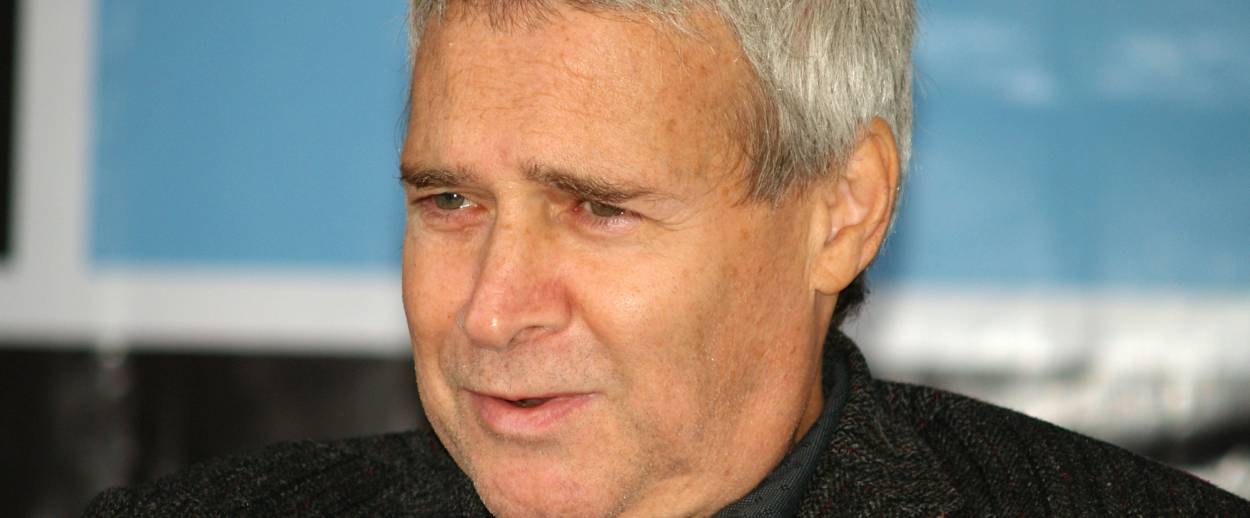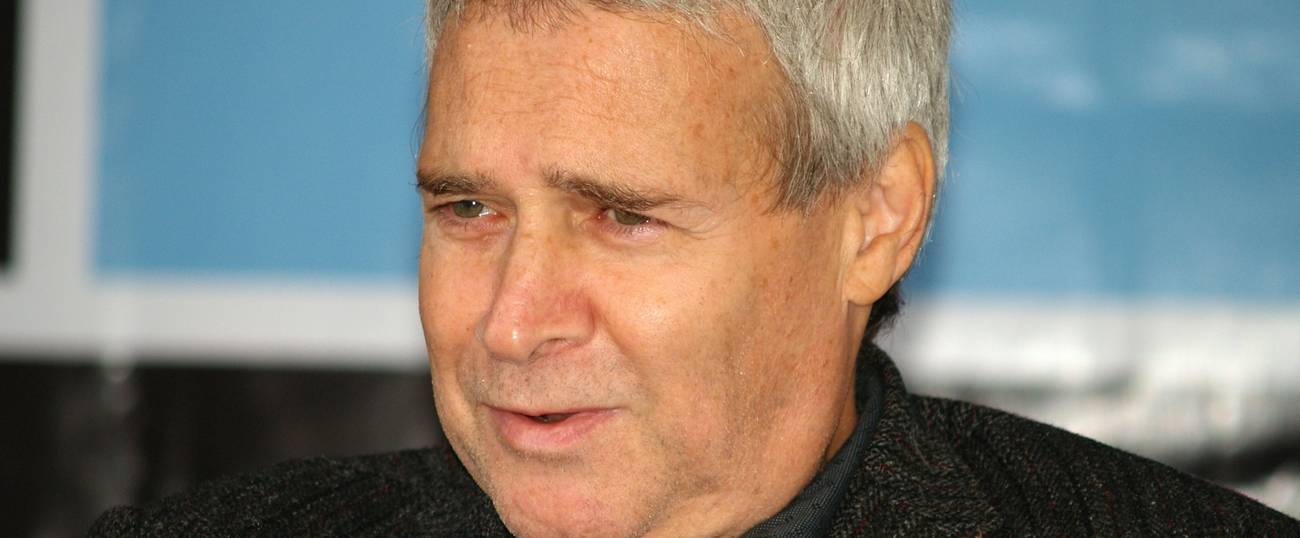Remembering Steve Dalachinsky
‘Poems are everywhere, you don’t have to look far’




People started mourning Steve Dalachinsky, Brooklyn-born experimental poet and performer, a mainstay of New York’s free jazz scene, while he was still alive.
This Sunday evening, Steve was in the hospital, in the aftermath of a heatstroke, somewhere between worlds, but surrounded by his close friends. In the meantime, dozens were already posting their eulogies on Facebook. There is a strange, Kafkaesque irony in this, but one that Steve would undoubtedly have a laugh about, maybe even riff on in a poem. Perhaps that’s what it means to be avant-garde—to be both always ahead and inside one’s unthinkable moments.
Most poets I know, no matter what the circumstances, can tell you exactly how many books they’ve published, which awards they’ve received and when, which magazines published them and which didn’t. Dalachinsky was different: The number of books, chapbooks, booklets, album liner-notes, records, anthologies, and collages that he authored, or collaborated on is simply unfathomable. Some of these works appeared only in Europe. Some of them had an extremely limited run. Final Nite (2006), his most well-known and widely available collection, which won the 2007 PEN Oakland National Book Award, although a superb book, does not begin to scratch the surface of all of the different stylistic and thematic experiments conducted by the poet in his own volumes.
In the 21st century, “a famous poet” is an oxymoron, almost always an in-joke. If you’re a poet, giving a live reading that’s not a publication party, and the space fills up, I suppose you’re famous. And of all the poets I’ve known who were, in that way, “famous”, what set Steve apart was an aura of someone from a distinctly different social stratum. He was decidedly un-academic, well-read and deeply knowledgeable but completely self-taught. A college dropout from a working-class Brooklyn family, he worked blue-color jobs and hustles much of his life. He was a super-intendent of an old building in Soho, where he and his partner Yuko continued to live together until now. He was not a very good super, if one is to believe Superintend’s Eyes, his early poetry collection, in which the opening “found poetry” piece is a note from a disgruntled tenant.
Steve also sold records and tapes on the street at some point, and when I knew him, wherever he went, he lugged his own books and records, and very actively, even aggressively worked on selling them. Most poets I know give their books away for free, just hoping you’d read them. But then again, most of these other poets have other jobs, teaching or writing, and Steve’s world was unlike theirs.
Perhaps as the result of all of this, Steve Dalachinsky was exposed to a certain social reality that others weren’t. Not that he wrote poems about society’s underbelly or anything like that: For the most part, he avoided straight narratives, opting for more thought-like juxtaposition of images, commentary, and questions, often with infusions of the surreal. But it was the language—jangly, rough, beautiful New York vernacular, peppered with occasional Yiddishisms and slang that was completely authentic and sounded exactly the way he actually spoke. If New York was a language, he mastered it, and it fountained through him.
I met Steve Dalachinsky at a formative moment in my life. I came to a poetry and music performance of Amiri Baraka—a poet I had long admired, studied, learned from, imitated, mythologized, and felt very ambivalent towards, in the light of Baraka’s history of sporadic and tense outbursts of anti-Semitism (I had written about that very reading in these very pages some years ago). That there was a Jewish poet, sharing a bill with Amiri Baraka, profoundly engaged with his work, and sharing in the jazz-infused aesthetics, was important for me to see. The conversation between Steve and I that unfolded in the aftermath of that reading was long and difficult, and it was the beginning of our friendship.
Steve hated the term “jazz poet”, even though it was often used to describe him. All too often, he’d complain, the term invoked a clichéd stoned Beatnik ranting on while the music blares. Steve’s performance work was far more nuanced: When collaborating with musicians, he read as if soloing; he allowed himself to go far beyond the space of the written page, but all the while he deeply listened to the players he collaborated with. He improvised over his poems in a style he himself invented: He’d repeat certain words and phrases, slowly modifying them; he’d come back to these as he went further into his poems. Sometimes would go back and forth between two or three poems, melding them together spontaneously. It was as if each poem would take on a new life in each new performance, bound to the moment and its circumstances.
Last year, on his trip to the Bay Area, Steve stopped by my poetry workshop at Kehillah Jewish High School, where I was teaching at the time. For some while my students had been reading his work in preparation for the visit. I asked them to choose one poem to discuss and they selected the one below:
a superintendent’s eyes #14 (2nd ave. deli* – the blizzard continues…)
do those touched by madness
recognize others likewise touched?
the woman sitting with me
in the deli
keeps saying whew it’s a real BLIZZARD
i turn absently toward the street
& go um hum umhum
my headache worsens
my neck equally tightens
the old old waiter
climbs inside of me
as i keep saying Thank YOU.
My students were struck by gnarly surrealism of the final stanza. They wanted to know what it meant, and asked him about it. Steve went on a prolonged, beautiful rant that shed light on his love for the Second Avenue Deli’s matzo ball soup, old Yiddish-speaking waiters, secular Jewishness, childhood, and madness. He sang a few bars from a song. He spoke for a while. Every time it seemed he was about to reveal the interpretation, he ducked and took another detour.
This poem opens with a question, but what follows is anything but an answer: Rather, an anxious, ironic vignette, set in a very specific physical space and filled out with vernacular language (reinforced by capitalization, repetition, and line-breaks), which, at the same time, teeters between this vernacular reality and something like a dream, fear, memory, or hallucination. What my students learned that day, I think, is that in the space of poem, a question is not a request for information or a clarification; it is an opportunity for an improvisation, for pleasurable interaction one can’t help but prolong through a serious of worthwhile evasions.
Once, Steve and I were sitting together in a café, and I admitted that I was experiencing something of a writer’s block. I asked what he does in similar circumstances. Instead of answering he pointed to a passing truck, with flashy advertising adorning it. Then he pointed to a sign, hanging across the street. He spontaneously combined and twisted the two phrases. “Poems are everywhere, you don’t have to look far,” he said. I am convinced that his deep understanding of jazz trained him for this sort of constant attunement, and honed his ability to observe and listen.
Today, I am thinking of Steve, I am listening: at the edge of void his absence engendered. As memories, anecdotes, and poems begin to come back to me, the void begins to sing.
Jake Marmer is Tablet’s poetry critic. He is the author of Cosmic Diaspora (2020), The Neighbor Out of Sound (2018) and Jazz Talmud (2012). He has also released two jazz-klezmer-poetry records: Purple Tentacles of Thought and Desire (2020, with Cosmic Diaspora Trio), and Hermeneutic Stomp (2013).